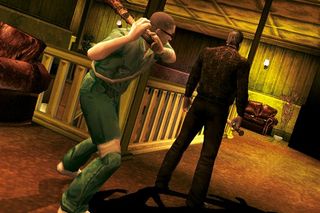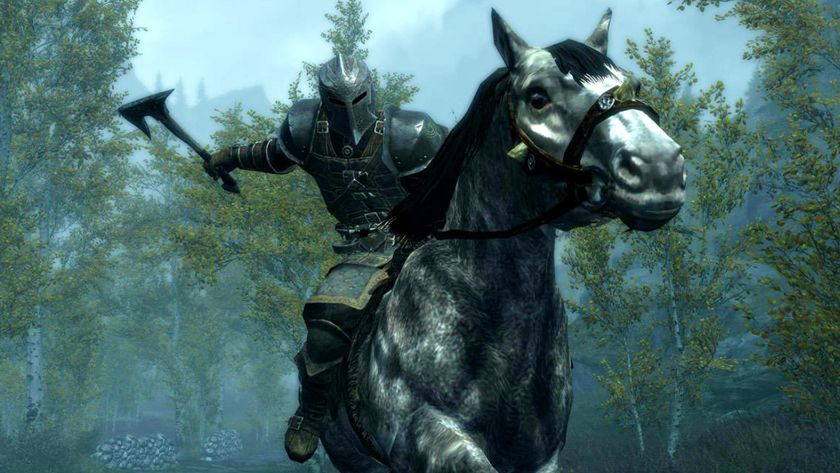And the reason we choose to do this in videogames is obvious; because - in real-world terms - it's virtually consequence-free. We know that we can engage in a 23-man killing spree in Scarface: The World is Yours, then switch off our PlayStation 2 without having to worry about an actual SWAT team crashing through our actual bedroom window and conducting a full and invasive search of our actual anal cavity.

Increasingly, the games we play are forcing us to be accountable for our actions, and in ever more complex ways. There was a time, way back at the dawn of the videogame, when developers simply prohibited you from engaging in such barbaric behavior as slaughtering innocent women and children. Then came the birth of the lightgun game and with it, a slightly more complex system of action and consequence. Early lightgun titles like Operation Wolf and Lethal Enforcers introduced the idea of the "friendly" target - typically a screaming woman or cute lollipop-totting child - who, if hit, caused you to lose a life point. So it was that for the first time in the history of videogames, players could indulge their inner-psychopath. The catch was, they were punished for it.
Jump on five years to 1997 and we come to Grand Theft Auto and the birth of the sandbox genre. Thanks to the addition of a "Wanted Meter," which incrementally increased the more bad behavior you engaged in, gamers could now directly chart their actions on the one hand - pulling a passing motorist from his car, beating him into a bloody smear with a baseball bat, then stealing his car and running him over - against their consequences.
Sign up to the 12DOVE Newsletter
Weekly digests, tales from the communities you love, and more













